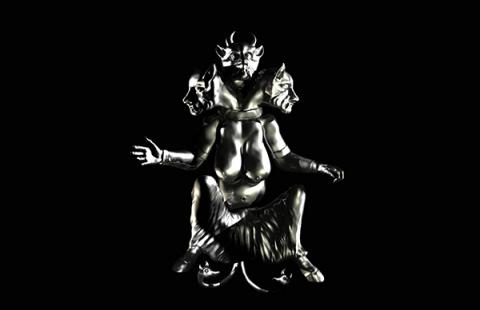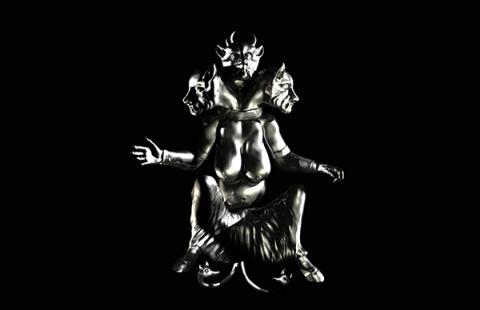Where do you want ghosts to reside?
January 17 – March 14, 2020
Curated by Azin Seraj and Zulfikar Ali Bhutto
Opening Reception: January 17, 2020, 7:00 - 9:00PM
Gallery Hours: Tuesday-Saturday, 12:00 - 6:00PM
Southern Exposure is proud to present Where do you want ghosts to reside?, an exhibition, publication, and performance opening January 17, 2020. This group project curated by Artist-Curators Azin Seraj and Zulfikar Ali Bhutto rearticulates historic narratives of the Middle East, North Africa, and South Asia, examining ways in which nationalistic stories are told in support of oppressive ideologies and biases. Six visual artists from Iran, Pakistan, India, and Egypt utilize the transformative power of telling their own histories to untangle and rework problematic pasts and forgotten Islamic myths.
The title, taken from Etel Adnan’s brutal epic poem about the Lebanese Civil War, asks us to consider our position in relation to our pasts and the ways in which narratives are used to create or enforce ‘otherness’ or belonging. Through the centering of critical voices and perspectives of artists rooted in the Middle East, North Africa and South Asia, this project humanizes those who have been marginalized by recent political rhetoric. The exhibition will include work by Morehshin Allahyari, Heba Y. Amin, Anum Awan, Arshia Haq, Shirin Fahimi, and Umber Majeed.
In partnership with Counterpulse and in conjunction with Where do you want ghosts to reside?, Southern Exposure presents Breaching Towards Other Futures, a performance by Morehshin Allahyari and Shirin Fahimi on February 7, 2020. Allahyari and Fahimi channel the revelation of a jinn figure Aisha Qandisha and Ilm al-raml (Geomancy – science of the sand) as their methods for telling and opening doors towards other futures. Aisha Qandisha is one of the most honored and fearsome jinn in Islam. She is known as ‘the opener’. When she possesses humans, she does not take over the host but rather opens them to the outside; to a storm of incoming jinn and demons, making them a traffic zone of cosmodromic data. Ilm al-raml refers to the foresight that the Earth holds with itself. Through its practice, this foresight is revealed and future is seen, known, and breached.
These artists layer a poetics of their own personal histories with nationalist narratives, to humanize and bring nuance into the conversation, as a counterpoint to reductively framing their stories as those of violence and victimhood.




